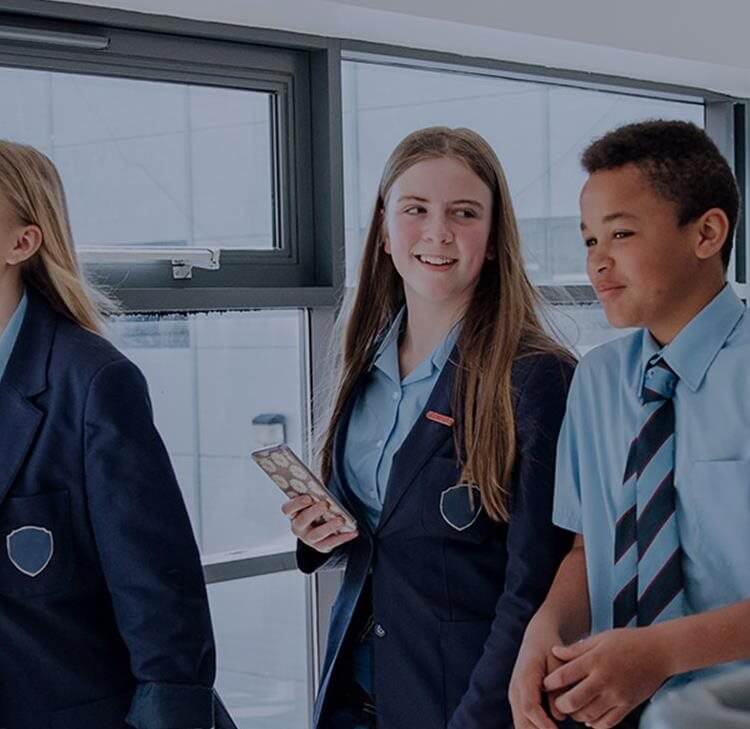The role of the SHAPE (Social Sciences, Humanities & the Arts for People and the Economy) subjects in knowledge exchange
Following publication of the first iteration of Knowledge Exchange Framework (KEF) results in Spring 2021, the British Academy released its report ‘Knowledge Exchange in the SHAPE disciplines’ (the Report) in June 2021 which presented a diverse range of case studies showing that knowledge exchange in SHAPE disciplines yields significant social, economic and cultural benefits.
Following publication of the first iteration of Knowledge Exchange Framework (KEF) results in Spring 2021, the British Academy released its report ‘Knowledge Exchange in the SHAPE disciplines’ (the Report) in June 2021 which presented a diverse range of case studies showing that knowledge exchange in SHAPE disciplines yields significant social, economic and cultural benefits.
As well as showcasing innovative knowledge exchange projects (including a collaboration between Browne Jacobson and the University of Nottingham), the report also suggests possible developments for future iterations of the KEF. These include extending the assessment categories to capture more activities (e.g. by measuring explicitly how SHAPE disciplines work with policy makers, engaging with schools and how the insights from SHAPE can help drive inclusion and equality).
What are the SHAPE subjects?
Much is written about STEM(M) (science, technology, engineering, mathematics, manufacturing) subjects and we probably all know which subjects are STEM(M) subjects but may be less familiar with the SHAPE subjects. They include a diverse range of subjects including Business and Management, Geography and Environmental Studies, Law, History and Archaeology and Languages, Linguistics and Classics and the Report describes them as ‘…subjects that help us understand ourselves, others and the human world around us. They provide us with the methods and forms of expression we need to build better, deeper, more colourful and more valuable lives for all.’
What is knowledge exchange?
The KEF categorises different types of knowledge exchange activities in a framework of seven perspectives. These perspectives capture just some of the ways that the knowledge and skills within universities can be used by wider society and how wider society can inform university education and research. The seven perspectives are:
- Research Partnerships (with non-academic partners)
- Working with Business
- Working with the Public and Third Sector
- Skills, Enterprise and Entrepreneurship
- Local Growth and Regeneration
- Intellectual Property and Commercialisation
- Public and Community Engagement
The projects showcased in the Report are categorised across these seven perspectives with some projects including several of the KEF perspectives.
Our collaboration with the University of Nottingham
We collaborated with the University of Nottingham to understand and improve the readability and comprehension of insurance policies. This followed a research study by linguistics experts in the School of English at the University of Nottingham which discovered that eight out of 10 policyholders in the UK found their insurance contracts too complex to understand.
Browne Jacobson commissioned a study from experts at the University using multiple methods, including cutting-edge eye-tracking technology. The study found that most policy wording was only comprehensible to those educated to undergraduate level but, with redrafting, complex policies could be made coherent to most individuals with lower secondary education. These improvements in readability and understanding increased the percentage of the UK adult population who could understand their policies from 13.4% to 89%, representing an extra 40.4 million people across the UK.
We worked together to explore what changes could make a policy document easier to understand and what might impede that understanding. These findings have been shared across the insurance industry in order to improve practice and accessibility. Since releasing the findings of the academic study we have worked with a number of insurance market participants to significantly improve the readability of the wordings, including by incorporating linguistic analysis by the university as part of our services.
Conclusion
This is a very timely report that highlights the potential for knowledge exchange activities to be developed in the SHAPE subjects in perhaps unexpected and exciting ways.
When you look at these opportunities with an eye to the future you can see a breadth of opportunity for universities to get involved. For example, two areas we have seen recently relate to health care and how it will develop to take into account social needs of society by working on innovation and research and how central government bodies have been studying and researching financial matters to provide the appropriate support for society; two areas which the pandemic has really shone a light on.
Related expertise
You may be interested in...
Online Event
Wellbeing and financial considerations – practical solutions for challenging times
Legal Update
be connected - Spring 2023
Legal Update
Teacher strikes – lessons learnt so far
Opinion
Can toilet facilities amount to sex discrimination?
Legal Update
New support launched to manage school complaints
Legal Update
Cyber security and data breaches
Legal Update
#EdCon2023 virtual event hailed a success
Online Event
Flexible working in schools webinar
Legal Update
What does the new Provider Access Legislation mean for schools?
Legal Update
High Court dismisses Welsh RSE right to withdraw claim
Opinion
Term-time school worker entitled to national minimum wage for unworked basic hours
On-Demand
Industrial action essentials: what you need to know
Legal Update
Education Software Solutions Limited breaks against the CMA’s intervention: A victory for freedom and flexibility in contracting for MIS services
On-Demand
The Subsidy Control Act 2022. Putting the new regime into practice
Legal Update
Safeguarding at scale report published
Legal Update
Trade unions announce plans to re-ballot members
Legal Update
Widespread industrial action now confirmed for schools
Legal Update
Industrial action and minimum service levels within education
Opinion
Consultation on holiday entitlement – part-year and irregular workers
Guide
FAQs - converting to academy status
Guide
FAQs - becoming a sponsored academy
Guide
FAQs - becoming an academy sponsor
Guide
FAQs – single academy joining a MAT
Legal Update
EdCon2023 launch: Thursday 12 January
Legal Update
The importance of understanding the transitional provisions under the Electronic Communications Code
Legal Update
Biodiversity Net Gain: positive for nature and an opportunity for landowners
Legal Update
Discrimination comes of age
Guide
#EdCon2023: Access a range of expert guidance and resources at our FREE virtual conference
Legal Update
be prepared for the 2022-23 academic year
Legal Update
Teacher Pay Survey 2022
Legal Update
be connected newsletter for schools - Winter 2022
Guide
Good governance essential to avoid falling foul of the ESFA
There’s been little evidence of interventions or financial management reviews this year and it appears the Education and Skills Funding Agency (ESFA) has re-focussed on financial delivery. It’s also telling that there were no discernible changes to the reporting of financial irregularities in the Academies Trust Handbook 2022.
Legal Update
Children's commissioner recommendations for SEND reform
The Children’s Commissioner, Rachel De Souza, has recently published a report “Beyond the labels: a SEND system which works for every child, every time”, which she intends to sit alongside the DfE’s SEND Review (2019) and SEND Green Paper (2022) and which she hopes will put children’s voices at the heart of the government’s review of SEND system.
Legal Update
School complaint management - exploring a new way forward
There’s greater opportunity than ever for parents, carers and guardians to voice any concerns they have relating to their child’s education and for their concerns to be heard and to be taken seriously. While most staff in schools and academies are conscious of their legal duties relating to complaints management, many are struggling to cope with such a significant increase in the volume of complaints they must manage.
On-Demand
The UK's green agenda - the outcomes of COP27 and actions since COP26
Guide
Setting up a trading subsidiary – a guide for academy trusts
We’re pleased to collaborate with Lloyds Bank, who recently asked us and audit and risk specialists Crowe UK to offer guidance that academy trusts would find helpful when considering setting up a trading subsidiary.
Legal Update
DfE Trust Capacity Fund
The DfE has published new guidance and opened the application process for window two of the Trust Capacity Fund (TCaF) for 2022/2023, with a fund of £86m in trust capacity funding focused particularly on education investment areas.
Guide
The Independent Inquiry into Child Sexual Abuse - A guide for schools and trusts
The Independent Inquiry into Child Sexual Abuse was established in March 2015. We now have its report. As you would expect with such a broad scope, the report is long and makes a number of far-reaching recommendations. In this article, Dai Durbridge highlights seven of the 20 recommendations, sets out how they could impact on schools and suggests what steps to take now.
Press Release
Law firm picks up record breaking sixth Education Investor Award
Browne Jacobson’s education team has been named as winner of the ‘Legal Advisors to Education Institutions’ category at the Education Investor Awards 2022 for a record sixth time.
Legal Update
Managed moves between schools
Since the new Suspensions and Exclusions Statutory Guidance was published, we have received a lot of questions about the use of managed moves. For the first time, the Statutory Guidance does explain what a managed move is, but in relatively broad terms and does not cover the mechanics of how a managed move should operate.






























